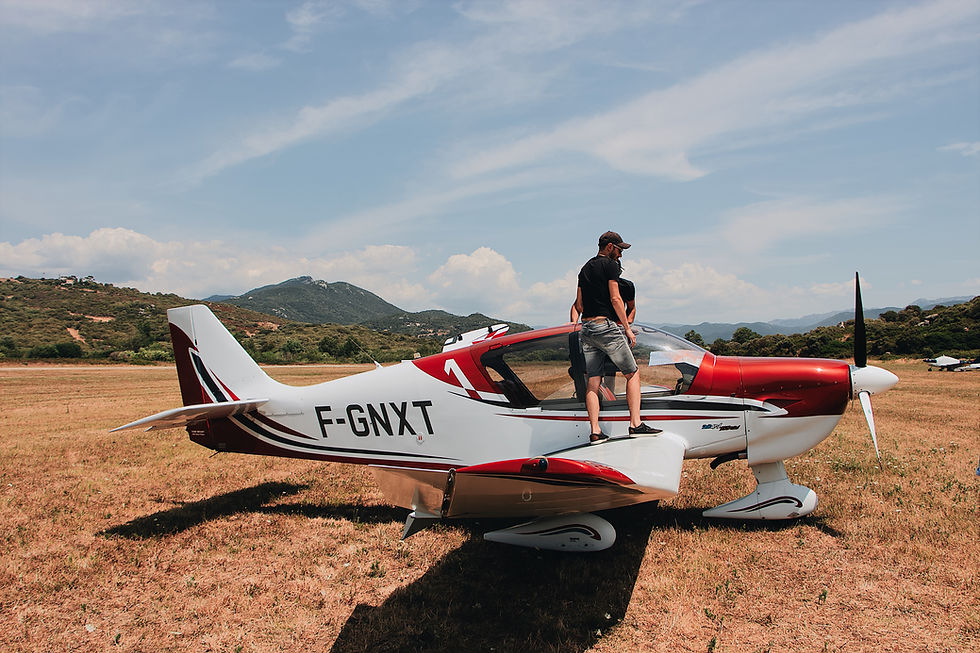Opportunities for International Student Pilots in Canada: Your Pathway to a Sky-High Career
- Pilot Insight

- 3 days ago
- 3 min read

Canada has become a premier destination for aspiring pilots from around the world, offering top-tier flight training programs, exceptional work opportunities, and potential pathways to permanent residency. For international student pilots, the aviation sector in Canada provides a well-structured pathway to not only earn a pilot license but also establish a successful career in the industry.
1. Why Canada?
Canada is renowned for its diverse flying conditions, from coastal routes to mountainous terrains, providing student pilots with comprehensive training in various weather scenarios. Additionally, the country is home to globally recognized flight schools equipped with state-of-the-art facilities and experienced instructors.
For international students, the Canadian aviation industry presents a unique blend of professional training and potential long-term career opportunities. With a growing demand for pilots due to retirements and industry expansion, there has never been a better time to pursue a pilot career in Canada.
⸻
2. Training Programs for International Students
Canadian flight schools offer a range of programs tailored to international students, including:
• Private Pilot License (PPL): Entry-level certification, ideal for recreational flying or as the first step toward a commercial career.
• Commercial Pilot License (CPL): Comprehensive training focused on advanced navigation, emergency procedures, and multi-engine operations.
• Instructor Rating: Allows pilots to gain valuable teaching experience while building flight hours.
• Multi-Engine Rating: Specialized training for flying twin-engine aircraft, a key requirement for commercial airline roles.
• Instrument Rating (IR): Teaches advanced navigation skills for flying in low visibility or challenging weather conditions.
⸻
3. Work Opportunities During Studies
International student pilots in Canada can take advantage of work opportunities both on and off-campus. The government permits international students to work up to 20 hours per week during the academic term and full-time during scheduled breaks.
Flight schools often employ student pilots as ground instructors, dispatch assistants, or support staff, allowing them to gain valuable industry experience while studying.
⸻
4. Post-Graduation Work Permits (PGWP)
After completing a flight training program, international graduates may be eligible for a Post-Graduation Work Permit (PGWP), allowing them to work in Canada for up to 3 years.
• Why the PGWP Matters:
• Provides an opportunity to gain Canadian work experience, a key requirement for permanent residency.
• Enables graduates to build flight hours and qualify for higher pilot licenses, such as an Airline Transport Pilot License (ATPL).
• Opens doors to airline hiring programs, especially as airlines in Canada face pilot shortages.
⸻
5. Pathways to Permanent Residency
Canada has designed specific immigration programs to attract skilled workers, including international student pilots. These pathways include:
• Canadian Experience Class (CEC): For graduates with Canadian work experience, particularly in skilled occupations like pilot roles.
• Provincial Nominee Program (PNP): Some provinces have specific streams targeting international graduates with flight training and aviation work experience.
• Express Entry: Points-based immigration system that considers education, work experience, and language proficiency.
• Francophone Mobility Program: Priority processing for French-speaking international students, particularly in aviation.
⸻
6. Scholarships and Financial Aid
While flight training can be costly, there are several scholarships and financial aid programs available for international student pilots in Canada:
• Air Canada Diversity Scholarship – Targeted at underrepresented groups in aviation.
• International Pilot Bursary Fund – Financial aid for high-performing international students.
• Canadian Aviation Scholarship Program – Support for students enrolled in advanced flight training programs.
⸻
7. Building an Aviation Network in Canada
Networking is crucial for student pilots aiming to transition from training to full-time employment. Students can connect with industry professionals by:
• Attending aviation expos, career fairs, and industry events.
• Joining student pilot associations and alumni networks.
• Participating in mentorship programs organized by flight schools.
• Engaging with experienced instructors and guest speakers.
⸻
8. Why Choose FirstClass International Aviation?
FirstClass International Aviation offers tailored programs for international student pilots, focusing on comprehensive training, career guidance, and post-graduation support.
• Customized Flight Plans: Training programs designed to align with individual career goals.
• Visa and Immigration Support: Assistance with study permits, work permits, and permanent residency pathways.
• Networking Opportunities: Access to alumni networks, industry events, and career workshops.
⸻
Conclusion: Your Aviation Career Starts Here
Canada presents unparalleled opportunities for international student pilots seeking to launch successful aviation careers. From high-quality training programs to work opportunities and immigration pathways, the country offers a structured and supportive environment for aspiring pilots.
If you’re ready to take the first step, explore the programs at FirstClass International Aviation – where your flight path begins.




Comentários